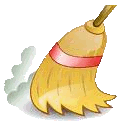
When Do You Need Your Next Dollar?
Written By John
When do you need the very next dollar you earn? At first that seems like a strange question to ask, but it’s actually a very good way to think about money.
Some people have a lot of money and some people don’t. And that’s ok. But one of the things that’s problematic when we don’t have a lot of money is the size of the hurdle we have to overcome in order to feel like we do have some.
For many people that hurdle is a number they feel they have to reach – some number of dollars in the bank or some number of weeks/months/years they can live without income.
Instead of thinking that way though, if we think in terms of when we need the very next dollar we earn, we are using a metric that gives both immediate results and a satisfying sense of progress almost right away.
Say, for example, that you live literally paycheck-to-paycheck – meaning you need your paycheck as soon as you get it. In that case, you need the very next dollar you earn right on pay day and you wait anxiously for your pay check.
Now lets say that feeling dis-satisfied with this state of things, you look for some areas in your life where you waste money or at least where you can save a little and instead of wasting that money, you tuck it away somewhere.
If you do this for a month, then at the end of the month you’ll have some number of dollars you wouldn’t normally have. This means that now you don’t need your paycheck on the day you get it, because you have a bit of a buffer. You can, if you need to, use the money you saved this month for a day or two. So if your paycheck was a day late, for example, you wouldn’t need to go hungry for a day – or worse, go into debt to eat.
One day isn’t a big deal, you say. True enough, because really, you still need that paycheck before you’ll receive your next one. But if, over the course of the month, you went from needing the next dollar you earn right on pay day to needing that next dollar you earn a day or two after pay day, what will happen if you keep going?
It’s not much of a stretch to see that if you keep going, you’ll add a couple more days to your buffer each month and a few months from now your buffer will be equal to one pay period – which means that you won’t need the next dollar you earn (or your next pay check!) until after you receive the following pay check!
That’s real and meaningful progress! Now if something happens, you’re not in trouble right away! You have some breathing room and the longer you keep at it, the more breathing room you’ll have! And, probably more importantly, you’ll have taken the first step towards a healthy relationship with money.
Money and psychology are connected. The richer you feel, the richer you’ll get and the more money you have, the more money will flow to you. When you start feeling positive about money, things really start to change and thinking about money in terms of when you need the very next dollar you earn has the power to swing things positive for you very quickly.
Maybe you don’t live pay check to pay check so the example above doesn’t apply directly to you. The idea still works though. Nothing is certain in the world, so it helps to have a buffer. Some say three months of living expenses is enough, some say six months and others feel more comfortable with a year or more.
Either way, thinking in terms of when you need the very next dollar you earn can help you build a bigger buffer by helping you focus and by giving you an almost immediate and continuous sense of progress. If you already have what you need, it can give you a feeling a safety, security and well-being – and well-being is what it’s all about.
Taking care of our finances is a big part of living sustainably, so personal finance will be one of the core themes for the articles on YourOwnDoorStep.com. This is the first in what will be a long series of articles on money, our relationship to it and how we can be happier with and without it. Please consider subscribing to our updates via Email or RSS to be notified when we add new articles.
